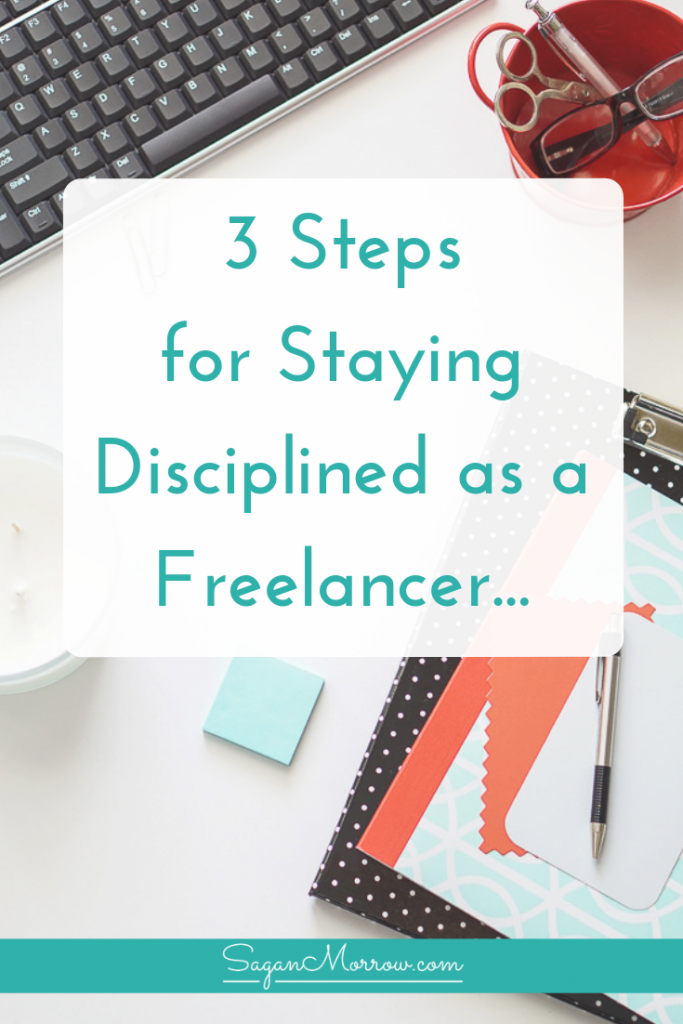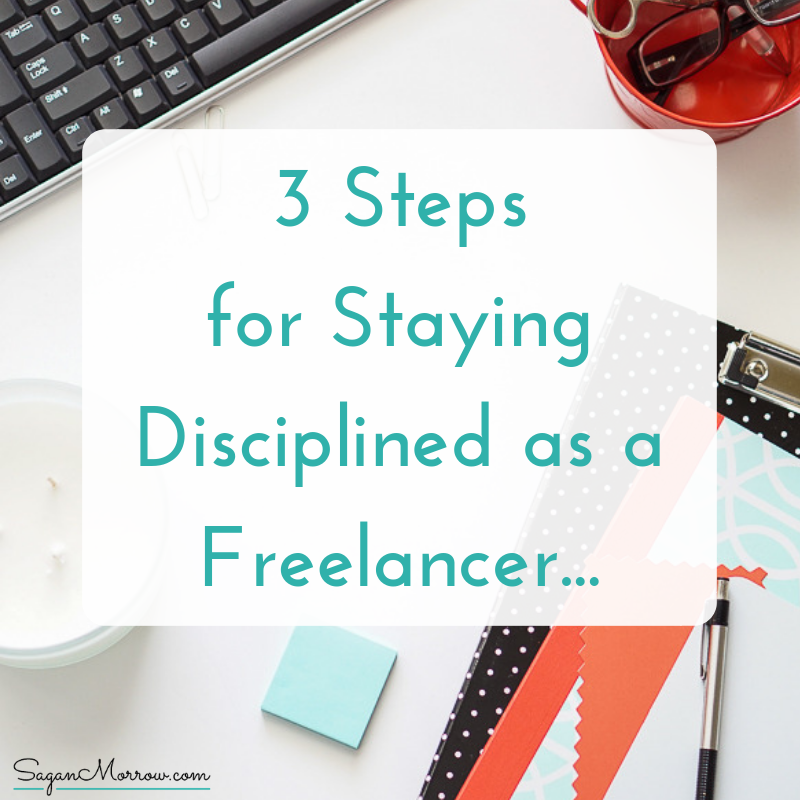This is a common question I get from people who work traditional 9—5 jobs, or who don’t have much experience in the small business world or in freelancing. And it’s an excellent question: if you don’t have a boss, then how can you stay on track with your work? What’s to stop you from just not doing anything all day long? Who keeps you motivated to keep working?
There are three steps, in my experience, to be productive, keep on track, and stay disciplined when you don’t have a boss…
Grab the cheatsheet to save 45+ hours each month >>
1) Outline your goals and workload.
What is your main goal with your work? What are you trying to accomplish? What tasks do you need to do in order to accomplish your goals? 
I find it helpful to have a variety of short-term and long-term goals: what you want to accomplish this week, this month, the next six months, the next year, and the next five years, for example. These goals can cover everything from what you want to personally get from your business to what you want to do for your clients to the direction you want your business to take.
Once you have drawn up your goals (psst… a good place to do this is in a business plan!), then you can outline your workload.
Your workload is all about the tasks that you need to do to achieve the goals you have set for yourself. Again, you’ll probably want a mix of tasks—and a to-do list is an effective way to keep track of them! I have regular tasks set for me to do every day or week, plus specific tasks to accomplish this particular day / week / month.
The purpose of outlining your goals and workload is that it will help you to have vision for yourself, your clients, and your business. It will enable you to better stay on track, and seeing your tasks and goals on paper will inspire and motivate you to do the work when you don’t have someone else there looking over your shoulder.
2) Give yourself deadlines.
You don’t have a boss to tell you when you need to have a project submitted to them. You have to be your own boss!
Even if your clients request you to do some work for them by a certain day, you are going to have to create your own internal deadlines to ensure you complete the work in a timely fashion.
When you don’t have someone watching your every move, you have to be the one to tell yourself when you will complete certain stages of the project. You have to give yourself deadlines to follow, or days and even weeks could pass without really doing much at all.
This is especially true in areas of creativity, such as writing or designing. Creative work can *always* be improved, but at some point, you have to say that this is as close to perfect as you’re going to get it—or just plain good enough.
Grab the cheatsheet to save 45+ hours each month >>
3) Know your work style.
Many bosses unfortunately won’t cater their management style to the way that you personally work. Now is your chance to figure out how you work best and manage yourself from there!
Experiment with working in different ways to determine what the best fit is for you. Do you get more high-quality work completed when you work for several hours straight, or do you prefer to work 12-hour days with 15-minute breaks every hour and a half? Are you more productive when you sit down and speak with the client about what exactly they want and need, or do you get better work done when you can provide a rough draft first? What time of day do you work best?
These are just a few of the questions you need to ask yourself in order to best understand your work style. And once you’ve determined it, you will find yourself producing more high-quality work than ever before!
